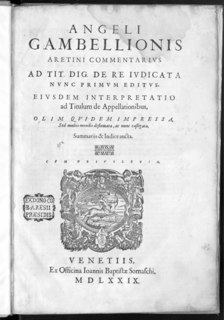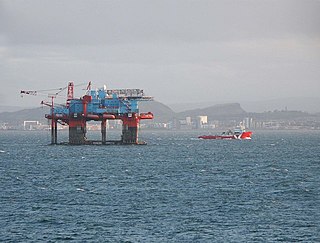Related Research Articles
A precedent is a principle or rule established in a previous legal case that is either binding on or persuasive without going to courts for a court or other tribunal when deciding subsequent cases with similar issues or facts. Common-law legal systems place great value on deciding cases according to consistent principled rules, so that similar facts will yield similar and predictable outcomes, and observance of precedent is the mechanism by which that goal is attained. The principle by which judges are bound to precedents is known as stare decisis. Common-law precedent is a third kind of law, on equal footing with statutory law and subordinate legislation.

In United States constitutional law, the political question doctrine holds that a constitutional dispute that requires knowledge of a non-legal character or the use of techniques not suitable for a court or explicitly assigned by the Constitution to the U.S. Congress, or the President of the United States, lies within the political, rather than the legal, realm to solve, and judges customarily refuse to address such matters. The idea of a political question is closely linked to the concept of justiciability, as it comes down to a question of whether or not the court system is an appropriate forum in which to hear the case. This is because the court system only has authority to hear and decide a legal question, not a political question. Legal questions are deemed to be justiciable, while political questions are nonjusticiable. One scholar explained:
The political question doctrine holds that some questions, in their nature, are fundamentally political, and not legal, and if a question is fundamentally political ... then the court will refuse to hear that case. It will claim that it doesn't have jurisdiction. And it will leave that question to some other aspect of the political process to settle out.

Article Four of the United States Constitution outlines the relationship between the various states, as well as the relationship between each state and the United States federal government. It also empowers Congress to admit new states and administer the territories and other federal lands.

The European Court of Human Rights, also known as the Strasbourg Court, is an international court of the Council of Europe which interprets the European Convention on Human Rights. The court hears applications alleging that a contracting state has breached one or more of the human rights enumerated in the Convention or its optional protocols to which a member state is a party. The European Convention on Human Rights is also referred to by the initials "ECHR". The court is based in Strasbourg, France.

The European Court of Justice, formally just the Court of Justice, is the supreme court of the European Union in matters of European Union law. As a part of the Court of Justice of the European Union, it is tasked with interpreting EU law and ensuring its equal application across all EU member states under Article 263 of the Treaty of the Functioning of the European Union (TFEU).
In European Union law, direct effect is the principle that Union law may, if appropriately framed, confer rights on individuals which the courts of member states of the European Union are bound to recognise and enforce.

Res judicata (RJ) or res iudicata, also known as claim preclusion, is the Latin term for "a matter decided" and refers to either of two concepts in both civil law and common law legal systems: a case in which there has been a final judgment and is no longer subject to appeal; and the legal doctrine meant to bar relitigation of a claim between the same parties.
The Supreme Court of Ireland is the highest judicial authority in Ireland. It is a court of final appeal and exercises, in conjunction with the Court of Appeal and the High Court, judicial review over Acts of the Oireachtas. The Supreme Court also has appellate jurisdiction to ensure compliance with the Constitution of Ireland by governmental bodies and private citizens. It sits in the Four Courts in Dublin.

The Living Constitution, or loose constructionism, is the claim that the United States Constitution and other constitutions hold a dynamic meaning that evolves and adapts to new circumstances even if the document is not formally amended. The Constitution is said to develop alongside the needs of a society and to provide a more malleable tool for governments. The idea is associated with views that contemporaneous society should be taken into account in the constitutional interpretation of phrases. The Constitution is referred to as the living law of the land as it is transformed according to necessities of the time and the situation.
The threshold of originality is a concept in copyright law that is used to assess whether a particular work can be copyrighted. It is used to distinguish works that are sufficiently original to warrant copyright protection from those that are not. In this context, "originality" refers to "coming from someone as the originator/author", rather than "never having occurred or existed before".
In law, the enforcement of foreign judgments is the recognition and enforcement in one jurisdiction of judgments rendered in another ("foreign") jurisdiction. Foreign judgments may be recognized based on bilateral or multilateral treaties or understandings, or unilaterally without an express international agreement.

The doctrine of legitimate expectation was first developed in English law as a ground of judicial review in administrative law to protect a procedural or substantive interest when a public authority rescinds from a representation made to a person. It is based on the principles of natural justice and fairness, and seeks to prevent authorities from abusing power.
Agostini v. Felton, 521 U.S. 203 (1997), is a landmark decision of the Supreme Court of the United States. In this case, the Court overruled its decision in Aguilar v. Felton (1985), now finding that it was not a violation of the Establishment Clause of the First Amendment for a state-sponsored education initiative to allow public school teachers to instruct at religious schools, so long as the material was secular and neutral in nature and no "excessive entanglement" between government and religion was apparent. This case is noteworthy in a broader sense as a sign of evolving judicial standards surrounding the First Amendment, and the changes that have occurred in modern Establishment Clause jurisprudence.
Article 6 of the European Convention on Human Rights is a provision of the European Convention which protects the right to a fair trial. In criminal law cases and cases to determine civil rights it protects the right to a public hearing before an independent and impartial tribunal within reasonable time, the presumption of innocence, right to silence and other minimum rights for those charged in a criminal case.
A preliminary ruling is a decision of the European Court of Justice (ECJ) on the interpretation of European Union law, given in response to a request from a court or tribunal of a European Union Member State. A preliminary ruling is a final determination of EU law, with no scope for appeal. The ECJ hands down its decision to the referring court, which is then obliged to implement the ruling.

The doctrine of legitimate expectation in Singapore protects both procedural and substantive rights. In administrative law, a legitimate expectation generally arises when there has been a representation of a certain outcome by the public authorities to an individual. To derogate from the representation may amount to an abuse of power or unfairness. The doctrine of legitimate expectation as a ground to quash decisions of public authorities has been firmly established by the English courts. Thus, where a public authority has made a representation to an individual who would be affected by a decision by the authority, the individual has a legitimate expectation to have his or her views heard before the decision is taken. Alternatively, an individual may also have a legitimate expectation to a substantive right. The recognition of substantive legitimate expectations is somewhat controversial as it requires a balancing of the requirements of fairness against the reasons for any change in the authority's policy. This suggests the adoption of a free-standing proportionality approach, which has been said not to apply in administrative law.

Russell v Transocean International Resources Ltd [2011] UKSC 57 is a UK labour law case, concerning the interpretation of the Working Time Directive. It is notable that Lord Hope remarked that the right to paid holidays is probably best interpreted as requiring that workers may take a whole week at a time, rather than individual days.
Kimble v. Marvel Entertainment, LLC, 576 U.S. 446 (2015), is a significant decision of the United States Supreme Court for several reasons. One is that the Court turned back a considerable amount of academic criticism of both the patent misuse doctrine as developed by the Supreme Court and the particular legal principle at issue in the case. Another is that the Court firmly rejected efforts to assimilate the patent misuse doctrine to antitrust law and explained in some detail the different policies at work in the two bodies of law. Finally, the majority and dissenting opinions informatively articulate two opposing views of the proper role of the doctrine of stare decisis in US law.

Cavendish Square Holding BV v Talal El Makdessi[2015] UKSC 67, together with its companion case ParkingEye Ltd v Beavis, are English contract law cases concerning the validity of penalty clauses and the application of the Unfair Terms in Consumer Contracts Directive.
Srl CILFIT v Ministry of Health (1982) Case 283/81 is an EU law case, concerning preliminary references to the Court of Justice of the European Union.
References
- ↑ Barnard, Catherine; Peers, Steve, eds. (2014). European Union Law. Oxford University Press. p. 291. ISBN 978-0-19-968611-7.
- ↑ See, for example, Limante, Agne. Recent Developments in the Acte Clair Case Law of the EU Court of Justice: Towards a more Flexible Approach. JCMS: Journal of Common Market Studies, 2016, DOI: 10.1111/jcms.12434